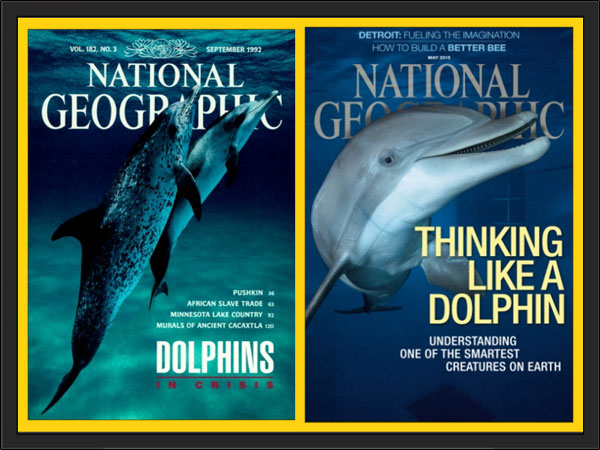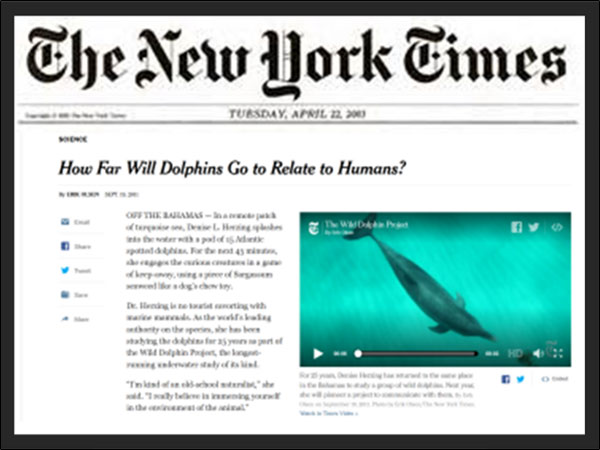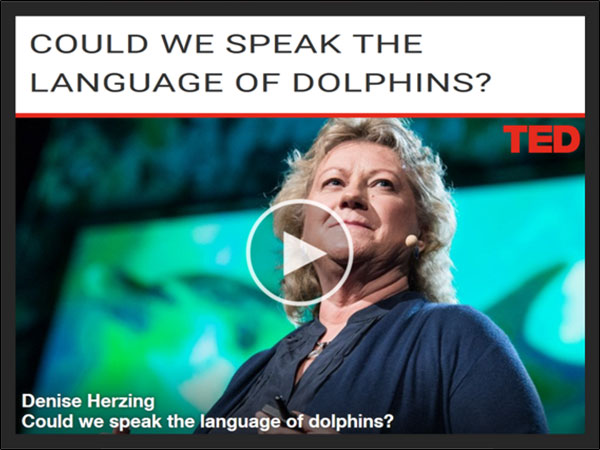Mission Statement
The Wild Dolphin Project is a non-profit scientific research organization that studies and reports on a specific pod of free ranging Atlantic spotted dolphins (Stenella frontalis). Since 1985, Denise Herzing has been studying dolphin communication in the wild. Objectives of this long-term, non-invasive field research on wild dolphins are to gather information on the natural history of these dolphins, including dolphin behaviors, social structure, dolphin communication, and habitat; and to report what we have learned to the scientific community and the general public.
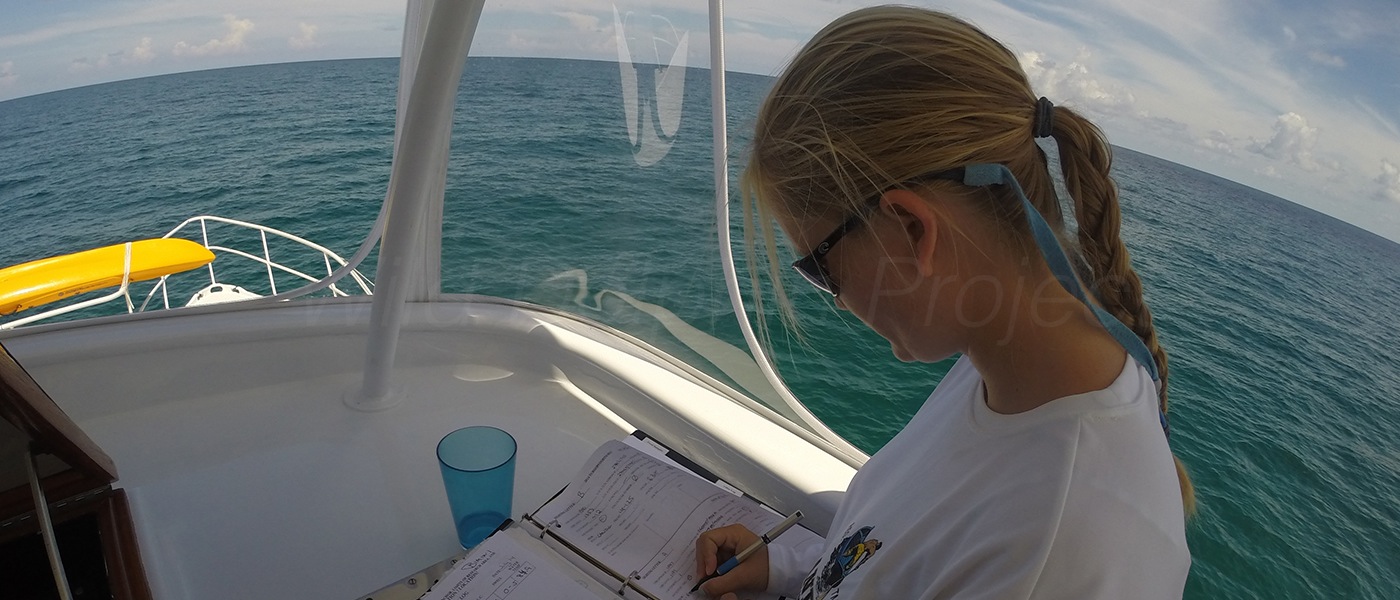 Our Research
Our ResearchSpanning four decades The Wild Dolphin Project is the longest running underwater dolphin research project in the world. With our underwater focus on observing and recording behavior and sound, we are determined to "Crack the Code" of dolphin communication.
Learn More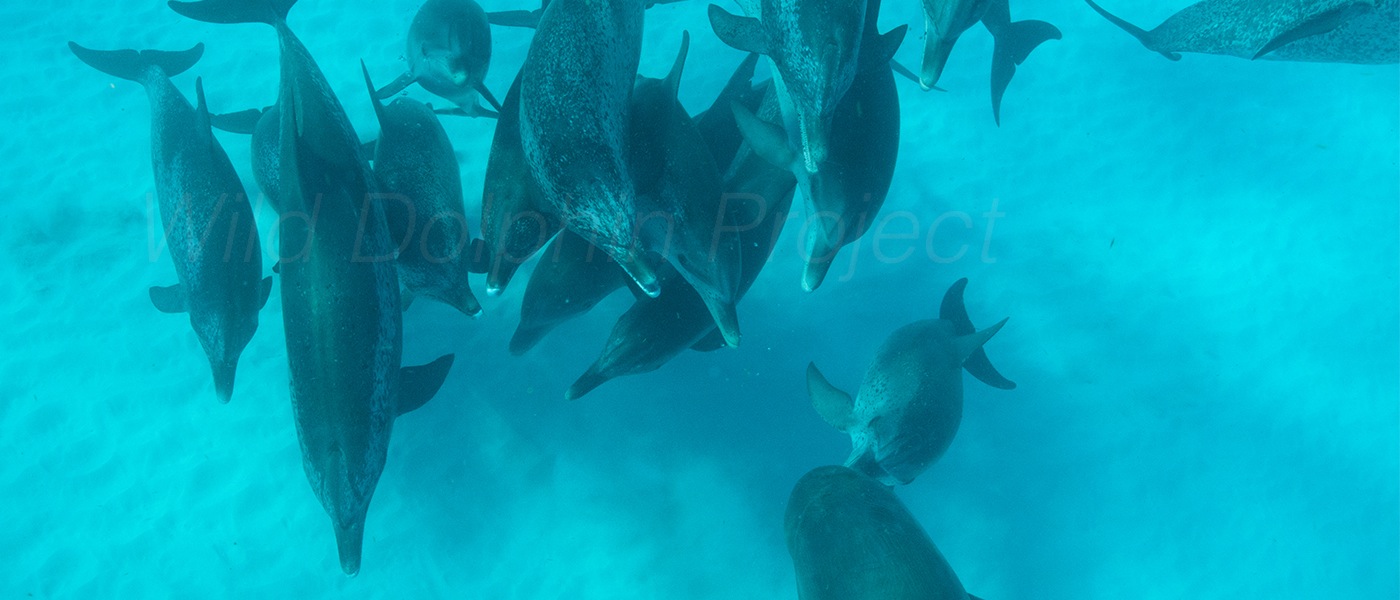 Membership
MembershipWhether you are looking to participate onboard Vessel Stenella or just stay updated on the project, our research, and upcoming events, a WDP membership will benefit you.
Become a Member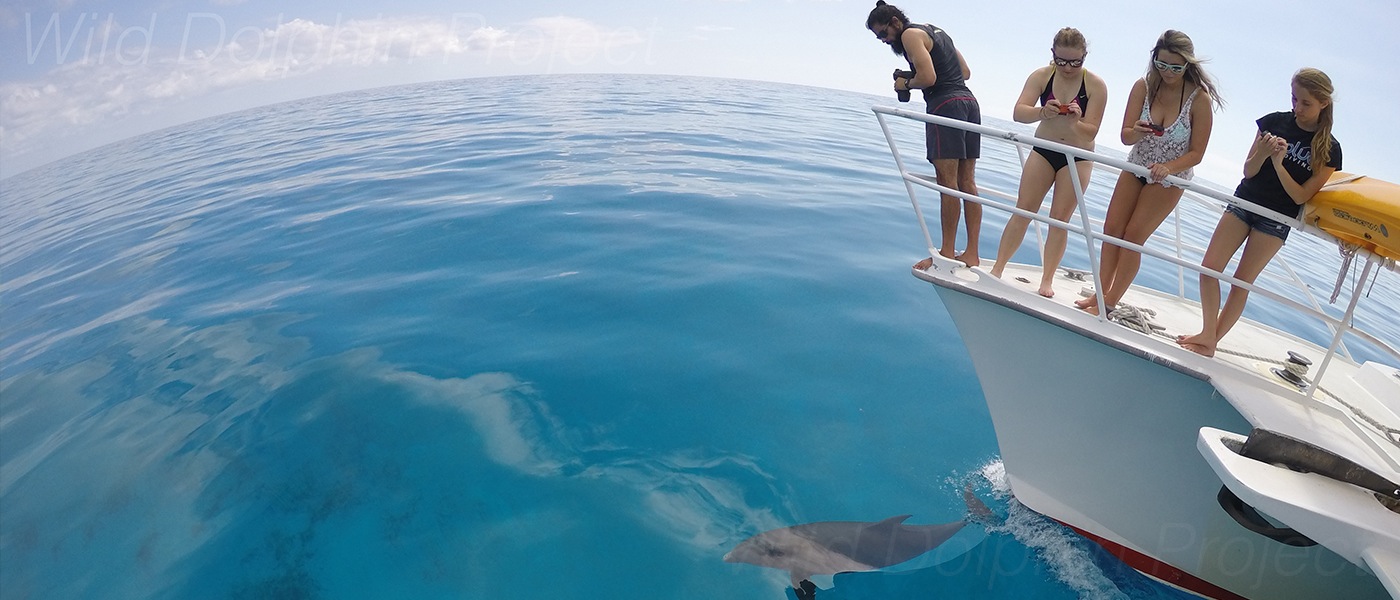 Participate
ParticipateThere are several ways to participate with The Wild Dolphin Project and help our work: Bahama Field Research, Florida Field Research, or Student Internships.
Learn moreMedia Coverage
In the Field
-
 24
Feb
24
Feb
How Dolphins Communicate
Read moreDolphins live in a world shaped by sound. In the ocean, where visibility can be limited, sound travels farther and faster than light. Dolphins
-
How Dolphins Are Similar to People
Read moreWhen people spend time watching wild dolphins, one thing becomes clear very quickly: these animals are not just swimming mammals — they are thinkers, communicators,
-
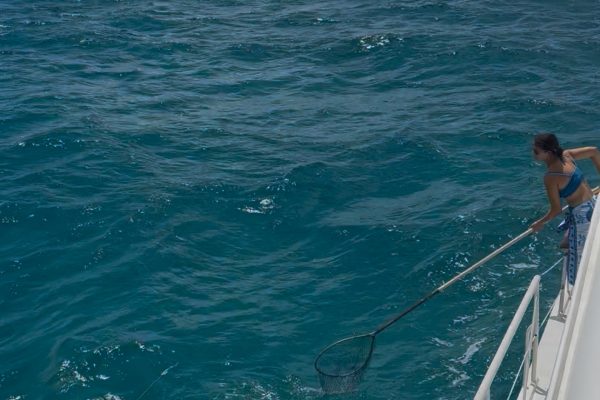 04
Nov
04
Nov
21 Balloons and a Bigger Problem: What Marine Debris Means for Dolphins
Read moreDuring our 2025 Bahamas field season with the Wild Dolphin Project, our team collected 21 balloons floating at or near the ocean’s surface —
-
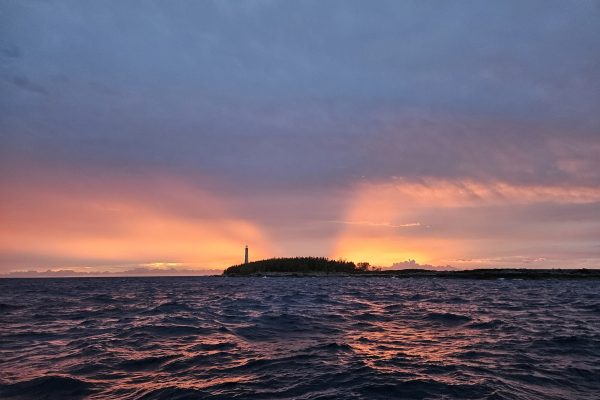 14
Oct
14
Oct
Last Trip of the Season and a GIANT Surprise!
Read moreWe were crossing back to Florida from the Bahamas on our final trip of the 2025 Field Season and it started with a flash of
-
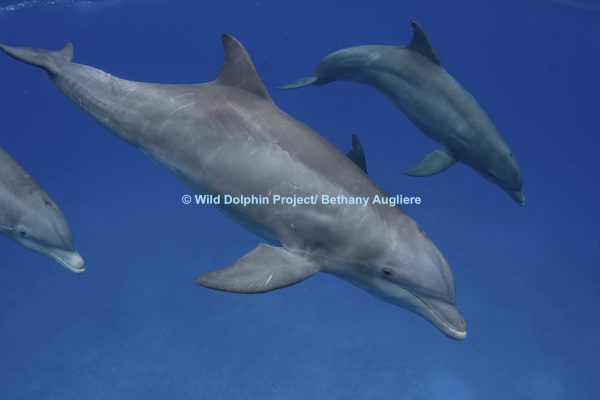 04
Oct
04
Oct
Trips 5 and 6
Read moreTrip 5: Dolphins in the Dark August really brought the rain to Stenella and The Bahamas. The first half of the trip was spent dodging


